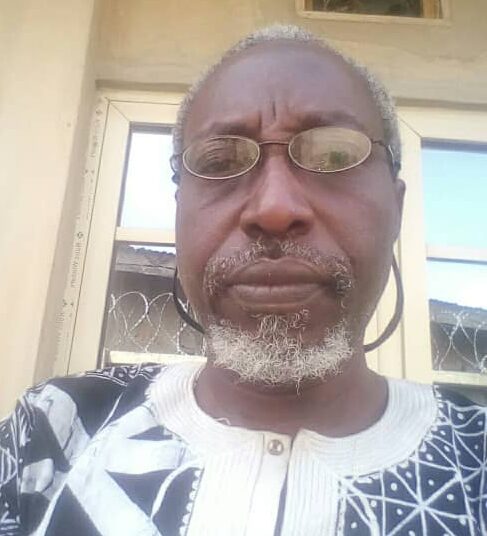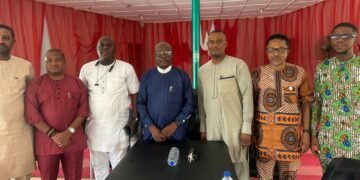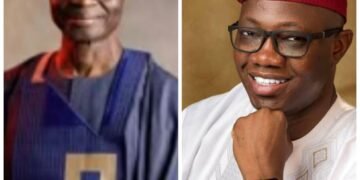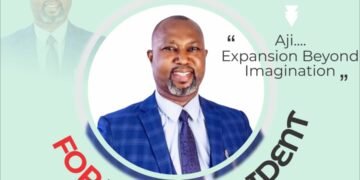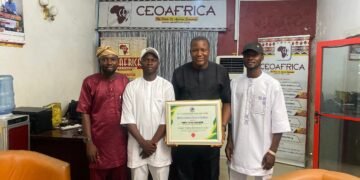-When leadership is a comedy of errors_ – _Williams Shakespeare_
_The function of leadership is to produce more leaders, not more followers._ – _Ralph Nader_
Leaders are born, and leaders are made. The genetic content of leadership and its human construction must weigh in the balance to cater to the complexity of today’s human societies. Even so, the dynamics of human governance demand that men offer selves to be cast and molded into materials for fitting leadership. Leaders must be made. Moreso, the seed of leadership must be nurtured to fruition to offer direction to a people in need. He must soothe their nerves and calm their frays. This kind of made-leaders are the ones remembered. Then! Who is a leader? A leader is someone who positions self as a change agent in any human society, forge direction for others to follow, mentor and model sacrificially, and motivate them to accomplish great things. Such does not necessarily need to be in a privileged position to influence things. Rather, he should be someone imbued with set skills and abilities that help advance mission and actualize visions of larger society.
A leader is someone with qualities that portrays such to be exceptional, and possesses the ability to motivate others to embrace creative ideas and positively impact their generation. Such become the solution hub for their nation, community or society. Leadership generates influentials able to transform their nation and not the harbingers of criminalized society. True leadership casts itself in a garb of selflessness. Whereas, pseudo leadership rears its head in two straits of selfishness and self – adulation. A time comes when a leader emerge and people applaud because he displays great courage and wisdom. As time passes, he slips into self-adulation, followed by self-seeking and indulgences in unbridled pleasures. Gradually, he loses his inviting aroma, his wisdom becomes corrupted, then he stumbles and becomes patently cruel and selfish. The moral compass is lost and people become disgruntled and disenchanted to connect. That’s when a leader steps out on board of the ‘success’ ship to massage his ego. This has been our lot in this clime. The ability to lead and lead well is the genre that makes or produces good leadership. Good leader is someone capable of driving in the right direction to achieve great desires. Driving people is difficult and it requires stimulation with good samples laced with disciplines and unwavering commitment.
This is one critical issue our political actors need to address because of the confidence placed in them. The “simpleness” with which they curry citizens’ ‘favour’ quickly turns into arrogance once they assume power. The road to failure is indeed paved with pride and over-assumption. Leadership is not about style, eloquence, large followers or ethnic support. The crux of leadership is humility, moderation, integrity and the grace to act as beacon of hope where there seems to be none. Leadership has responsibilities and rights, even if the leader’s followers do not perceive this to be so. Arrogant leaders are people who act rudely and do not listen to others. They often pull down those around them to feel better about themselves, get more attention or have a feeling of importance. Sadly, the twisted leadership version, is what is offered on display in our clime. But for how long do we continue with this malevolent trajectory, of condoning leadership deficiency and failures?
Should we as citizens be buried in the lamentations of bad leadership? Are any efforts being made to change the narrative beyond slogans? To think that at 64 years of independence, we have not been able to produce the right crop of leaders! Leaders who deserve to wear the badge of honour of quintessential leadership. Therefore, to answer the question, ‘What is really wrong with Nigeria?’ Late Nigerian writer and literary giant, Chinua Achebe, gave us a glimpse. In his book titled “The Trouble with Nigeria” the iconic writer reminded us of heads of state from the first 23 years of independence who failed Nigeria and Nigerians.
This was his summation in 1983 when the book was published. “That after over 20 years of bloodshed, flagrant corruption, military rule and pockets of intertribal conflicts and massacres that drowned the progress of post-independence Nigeria, it was unequivocally clear there was something wrong with Nigeria. It was not something in her Niger or Benue rivers or any of her waters, neither was it something in the air cascading her rainforests and sprawling fields, because even in the chaos of the madness that was a troubled Nigeria, there were still patches of order and beauty in her topography and sanity in some of her people. “ Achebe should have wondered how more heads of state would go on to fail Nigerians 40 more years down the line.
Chinua Achebe recognizes that the principal drawback for Nigeria is failure in leadership. According to him, Nigeria was the way it was because Nigerian leaders were unwilling or unable to lead by personal example. Hear him, ‘Nigeria can change today if she discovers leaders who have the will, the ability and the vision’ to bring about the change the country needs. Achebe does not stop at making this seemingly simplistic point. He proceeds to draw out nuances that show how all the apparent setbacks to growth that Nigeria faces as a nation only exist because the leaders in the country could not rise to the occasion required by their position and office. It is remarkable that 40 years later, the problem he found to be afflicting the country, is still much present.
Now for over 60 years, the trouble with Nigeria has lain in leadership failure. It is lamentable that after the sublime entry, of the much touted ‘benevolent’ democracy, the country is still groping for direction as player after player enter the arena to seek our votes, and as we see power change hands without the misery of the electorate changing seat. They woo us, seek our votes, not for our own good, but to continue to divide our commonwealth and ruin our country.
It is pertinent to re-echo the question the Nigerian nationalist, late Mallam Aminu Kano asked many years ago—”What is the purpose of political power?” Successive regimes of military and civilian leadership have failed to ask themselves this question; what is the purpose of political power to them? Is it making and implementing positive, actionable and beneficial policies and programs for Nigerians, or is political power something they want because ‘it is their turn’? Until Nigerian leaders, present and prospective, can answer this question, they will always misuse their office and remain our principal problem as a nation.
Reflecting on this recently, I took up the question of civics and the very poor quality of our political class, arguing that we do ourselves a great disservice by accepting it as a given that our leaders lack integrity and competence and yet we allow them to govern. In so doing, we are as guilty of complicity as the politicians in creating the ideological basis for excusing the political class from responsibilities for what they promise and do, or rather, what they fail to do. I made the case that in a representative democracy, the political class is by definition, supposed to be composed of people with character and integrity, who keep their word and do exactly what they promise.
Our space – Nigeria is a large, diverse and complex country with a population of over 200 million. The country has had a turbulent political history, with the First Republic lasting only five years, while the life of the Second Republic had an even shorter life span of four years. The Third Republic did not even take off due to military adventurism. The Fourth Republic has however endured for over 25 years. Political parties are the central players in the democratic process and consolidation of democracy requires that they improve the quality of their engagement with the democratic process, as they grow and develop. The reality, however, is that our political parties systematically refuse to imbibe and practice internal party democracy and are essentially run by godfathers and political barons who are the “owners” of the parties. Party membership is very weak in Nigeria and unlike the case in most democratic countries, party members usually play no role in the choice of party leaders and candidates for elections. The party conventions are usually circuses, or rather, acts of pantomime, where the delegates are directed by their bosses or paid fees to produce the outcome decided by godfathers.
In my engagement recently with friends across the political divide and professional colleagues, I have argued that the pathway to deepening democracy is to get ordinary members to take over control of their parties and if they are blocked, to move en masse to other parties that might be ready to play the democratic game. The way to improve our democracy is to make party membership less ephemeral and more real. Political parties in Nigeria need members, not patrons and their clients. The attachment of citizens should be to political parties, not to patrons or godfathers who pay for their engagement in the political process. That was the interrogation of politics witnessed in the second Republic with the Unity Party of Nigeria led by late Obafemi Awolowo; the Peoples Redemption Party led by the late Malam Aminu Kano and the apostle of politics without bitterness Ibrahim Waziri and NPP of Dr. Nnamdi Azikiwe. The mode of participation in political party activities, which is currently governed and mediated by political bosses to whom people owe allegiance, must change.
The template we must develop is an overwhelming consensus that political leadership cannot remain the only job for which no credible qualification appears necessary, except to have lot of money, usually stolen money. It is clear that for as long as the current pattern of leadership recruitment continues, our troubles will remain. It is for this reason that we must find a way to bring relevant criteria to bear on the selection of leadership. There is the need to look inward and reflect on how to change the prevailing culture of political nomadism, in which patrons and godfathers engage in party activities to obtain nomination and stand elections, for themselves or their surrogates, and when they fail to obtain the positions sought, they tend to move out with their clients to other parties in search of newer opportunities.
This shows that both for the patrons and their clients, adherence to political parties is very fluid and opportunistic. It is also true that at the grassroots, many people own multiple party cards, as they seek to be invited to as many party congresses as possible, because the tradition is to pay participants for their support and votes. Such people therefore move from party to party in search of opportunities. This is the entrepreneurial approach to politics, which should be replaced by a more democratic one. Nigeria needs a new breed of leaders.
In his classic lecture on leadership qualities, “Mutumin Kirki: The Concept of the Good Man in Hausa Society”, Anthony Kirk-Green defined the attributes that people seek in good leaders. These are: truthfulness, compassion, integrity, trust and generosity, for those in need. Wealth and material success were not earlier considered as important attributes in the selection of leaders. Today, those who can provide the biggest bribes for the biggest number of people emerge as our leaders. We must develop an overwhelming consensus that political leadership cannot remain the only job for which no qualification appears necessary, except to have a lot of money, usually stolen money. It is clear that for as long as the current pattern of leadership recruitment continues, our troubles will remain.
The problem with Nigeria was and still is bad leadership. It is because we have consistently had a recycling of unqualified old men who hoist themselves on the people, and in most cases against the will of the people, that we see a lot of the problems we have as a nation going on with no hope of an end. It is why we have a lot of corruption and injustice from all arms of government. When three arms of government are complicit in illegality, their choices become reduced to advancing personal interests or drowning together if any arm should insist on actually serving in the interest of the common Nigerians.
It is for this reason that we must find a way to bring relevant criteria to bear on the selection of leadership. We have got to find a way of making character, competence and capacity determine who leads. Only people of proven integrity should be considered for leadership. People know who are the persons of good character in their communities and the proposal is that before party primaries, widespread discussions are held to identify people with integrity to be considered for positions. Many such people may not propose themselves for public office, knowing the high level of monetization of our politics, and they might therefore rule themselves out of reckoning. The benefits of community involvement in the process is that resources could be raised collectively to support their candidature. People who have been known, formally or informally, to have been involved in corruption must be ruled out of consideration at the outset. Truthfulness is another important criterion for consideration.
There has to be a minimum education standard, which is a degree or higher national diploma. Finally, age and good health are key factors in leadership and Nigerians know a lot about these issues. People with advance age should be encouraged to stay out of politics, because they are unlikely to have the energy for the enormous work involved in running a country as large and complex as Nigeria.
Leadership requires people with visions of what they want to achieve for Nigeria. Of course, we have witnessed the cash tankers in politics hiring good consultants to write up vision statements and programmes for them. It is therefore important to define competence on the basis of the track record of proposed candidates – their professional backgrounds and accomplishments, community engagement and service, and views expressed on political, economic and social issues. There has to be a minimum education standard, which is a degree or higher national diploma.
The success of governance requires respect and knowledge of how democracies work at their best. The good profile of a democratic player includes respect for due process and the rule of law. Even more important is the disposition to be always ready to promote the participation of members – community, political party, assembly, etc. In order words, people with an ingrained civic culture. We need a new breed of leaders who see their role as listening to the people and negotiating compromises that address at least some of their needs. Thorough and open discussions of policy programmes before their adoption is extremely important in democratic systems. The idea is that we want to move away from politics as a brute expression of power or manipulation. A civic culture that respects and builds citizenship is very important.
Lanre Ogundipe
Former President Nigeria and Union of Journalists writes from Abuja


